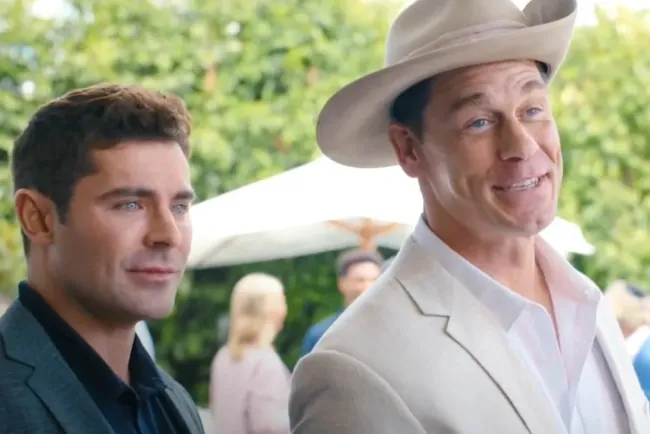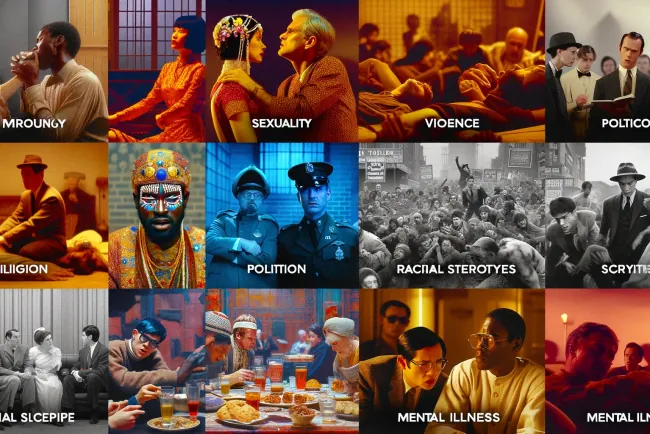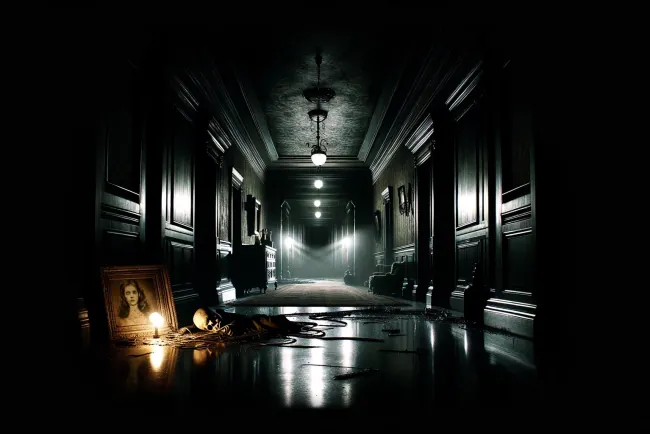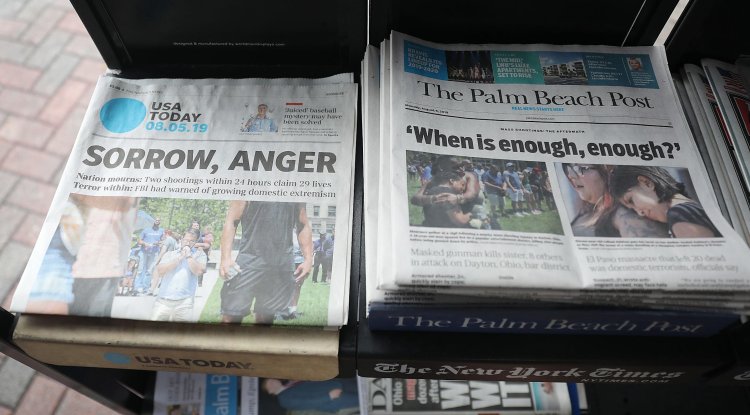Unpacking Justice: The Timeless Impact of '12 Angry Men
12 Angry Men a classic film that delves into the intricacies of the American justice system and the complexities of human nature. Directed by Sidney Lumet and starring Henry Fonda, this courtroom drama remains a pivotal exploration of prejudice, ethics, and the moral challenges within a jury room
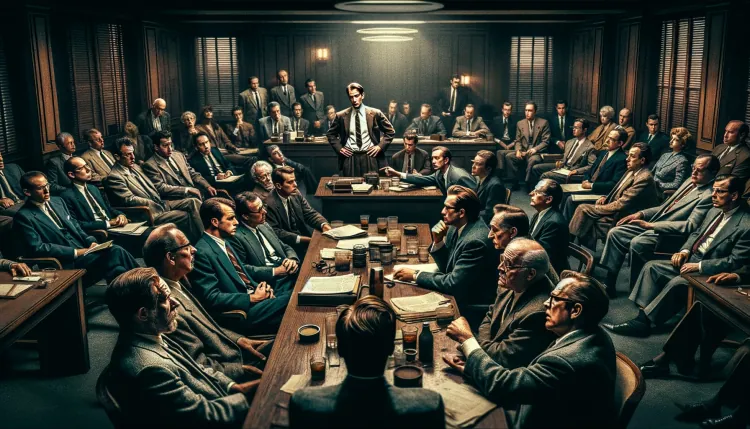
"12 Angry Men": A Cinematic Masterclass in Tension and Moral Conundrum
"12 Angry Men," directed by Sidney Lumet and released in 1957, remains a seminal work in the annals of American cinema, renowned for its incisive exploration of justice, prejudice, and human frailty. With its single, claustrophobic setting and powerhouse performances, the film offers a profound study of character, society, and the mechanisms of the law. This article delves into the elements that make "12 Angry Men" not only a pivotal courtroom drama but also a timeless narrative relevant in any era.
Plot Overview
"12 Angry Men" unfolds in a New York City jury room, where twelve jurors are confined to decide the fate of a teenage boy accused of murdering his father. What appears to be an open-and-shut case gradually unravels as the jurors’ personal biases and perceptions of the truth come to the fore. The film is virtually a real-time deliberation, with Juror #8, played by Henry Fonda, standing as the lone voice of doubt against eleven jurors ready to convict.
Character Dynamics and Development
The brilliance of "12 Angry Men" lies in its deep character development. Each juror is distinct, representing a wide swath of backgrounds, worldviews, and biases. From the racist tirades of Juror #10 to the quiet, thoughtful arguments of Juror #9, the film offers a microcosm of society within the confines of a jury room. As the story progresses, the characters evolve or reveal deeper aspects of their personalities, driven by the intense scrutiny of the facts and each other.
Direction and Cinematic Techniques
Sidney Lumet’s direction is a study in constraint and mastery over filmic space. Almost entirely shot within one small jury room, the film uses tight framing, close-ups, and fluid camera movements to amplify the growing tension among the jurors. As the film progresses, Lumet subtly shifts the camera angles and uses closer shots to increase the feeling of claustrophobia and heat, both literal and metaphorical.
Themes and Social Commentary
At its core, "12 Angry Men" is a profound commentary on the American justice system and the concept of a fair trial. It scrutinizes how personal biases can cloud judgments and how truth is often more subjective than it appears. The film is particularly poignant in its examination of how prejudice can influence outcomes in a system that ideally should be blind to differences.
Legacy and Relevance
Over six decades after its release, "12 Angry Men" continues to be relevant. It is widely used in educational settings, from law schools to ethics classes, to discuss the dynamics of group decision-making, justice, and ethical leadership. Its themes resonate in a contemporary context, reflecting ongoing discussions about justice and bias in society.
Conclusion
"12 Angry Men" transcends its era and the confines of its setting to deliver a universal story about decency, justice, and the complexity of human nature. It stands as a beacon of American filmmaking, a tour de force of acting and a meticulously crafted narrative that holds as much power today as it did over half a century ago. For anyone interested in the intersections of law, society, and cinema, "12 Angry Men" is an essential film that challenges, educates, and entertains.
What's Your Reaction?







